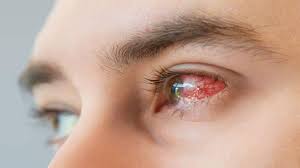Sleep Disorders – 4 Common Conditions and Effective Solutions

Sleep Disorders - Common Conditions and Effective Solutions
Introduction
Sleep is an essential aspect of our lives, yet many individuals struggle with sleep disorders that disrupt their rest and overall well-being. From insomnia to sleep apnea, understanding common sleep disorders and finding effective solutions is crucial for achieving restful nights.
In this blog post, we will demystify sleep disorders by exploring their causes, symptoms, and impact on daily life. We will also discuss proven strategies and solutions to help individuals overcome these challenges and experience rejuvenating sleep.
Insomnia: The Sleep Thief
- Insomnia is one of the most prevalent sleep disorders, characterized by difficulty falling asleep or staying asleep.
- It can have various underlying causes, including stress, anxiety, poor sleep habits, or certain medical conditions.
- Insomnia has far-reaching consequences beyond mere fatigue.
- It can lead to daytime fatigue, impaired concentration, mood disturbances, and reduced productivity.
- Effective solutions for managing insomnia include establishing a consistent sleep routine, creating a sleep-friendly environment, practicing relaxation techniques, and seeking professional help when needed.
Sleep Apnea: When Breathing Becomes a Challenge
- Sleep apnea is a sleep disorder characterized by pauses in breathing or shallow breathing during sleep.
- It is often caused by the relaxation of the throat muscles, leading to blockage of the airway.
- Common symptoms include loud snoring, excessive daytime sleepiness, morning headaches, and irritability.
- Sleep apnea can have serious health implications, including an increased risk of cardiovascular diseases.
- Treatment options range from lifestyle changes, such as weight loss and sleeping position adjustments, to continuous positive airway pressure (CPAP) therapy or oral appliances.
- Seeking a diagnosis from a healthcare professional is crucial for managing sleep apnea effectively.
Restless Legs Syndrome (RLS): The Unsettling Sensation
- Restless Legs Syndrome (RLS) is a condition characterized by an uncontrollable urge to move the legs, often accompanied by uncomfortable sensations.
- These sensations typically worsen during periods of rest or inactivity, making it challenging to fall asleep or stay asleep.
- RLS can be caused by various factors, including iron deficiency, kidney problems, or certain medications.
- Lifestyle changes, such as regular exercise, avoiding caffeine, and maintaining a consistent sleep schedule, can help manage RLS symptoms.
- In some cases, medication may be prescribed to alleviate discomfort and improve sleep quality.
Narcolepsy: When Sleep Invades Wakefulness
- Narcolepsy is a neurological sleep disorder characterized by excessive daytime sleepiness and sudden, uncontrollable sleep attacks.
- Individuals with narcolepsy may experience fragmented nighttime sleep, vivid dreams, and temporary muscle weakness (cataplexy) triggered by strong emotions.
- The exact cause of narcolepsy is still not fully understood, but treatment options are available to manage its symptoms.
- Lifestyle modifications, such as establishing regular sleep patterns and taking scheduled daytime naps, combined with medication prescribed by a healthcare professional, can help individuals with narcolepsy lead more fulfilling lives.
Effective Solutions for Better Sleep
Managing sleep disorders requires a personalized approach, but there are general strategies that can promote better sleep for everyone:
- Establish a regular sleep routine by maintaining a consistent bedtime and wake-up time every day.
- Foster a sleep-conducive atmosphere in your bedroom by ensuring it is comfortably cool, adequately dark, and free from disturbances.
- Incorporate relaxation techniques into your pre-sleep routine, such as deep breathing exercises or meditation, to promote a calm and peaceful state of mind before bedtime.
- Limit exposure to electronic devices, especially before bedtime, to minimize the impact of blue light on sleep quality.
- Engage in regular physical exercise during the day, but avoid intense workouts close to bedtime.
- Evaluate your sleep environment and invest in a supportive mattress, comfortable pillows, and breathable bedding.
- Avoid consuming stimulants like caffeine or nicotine close to bedtime, as they can interfere with sleep.
Conclusion
Sleep disorders can significantly impact an individual’s well-being and quality of life. By demystifying common sleep disorders and understanding effective solutions, individuals can take proactive steps to overcome sleep challenges and experience rejuvenating rest.
Whether it’s insomnia, sleep apnea, restless legs syndrome, or narcolepsy, seeking professional help and implementing lifestyle modifications can lead to better sleep and improved overall health. Prioritizing sleep is a powerful investment in our physical, mental, and emotional well-being.
For More Related Articles Browse Our Website Blogster.pk
For social Connection You can also Visit and follow our Social media Platforms
Facebook , Instagram, Linkedin, Pinterest, Quora, Twitter, Youtube.








